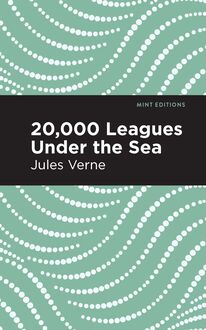-
 Univers
Univers
-
 Ebooks
Ebooks
-
 Livres audio
Livres audio
-
 Presse
Presse
-
 Podcasts
Podcasts
-
 BD
BD
-
 Documents
Documents
-
- Cours
- Révisions
- Ressources pédagogiques
- Sciences de l’éducation
- Manuels scolaires
- Langues
- Travaux de classe
- Annales de BEP
- Etudes supérieures
- Maternelle et primaire
- Fiches de lecture
- Orientation scolaire
- Méthodologie
- Corrigés de devoir
- Annales d’examens et concours
- Annales du bac
- Annales du brevet
- Rapports de stage
La lecture à portée de main
Vous pourrez modifier la taille du texte de cet ouvrage
Découvre YouScribe en t'inscrivant gratuitement
Je m'inscrisDécouvre YouScribe en t'inscrivant gratuitement
Je m'inscrisEn savoir plus
Vous pourrez modifier la taille du texte de cet ouvrage
En savoir plus

Description
Claimed (1920) is a science fiction novel by Francis Stevens. Using her well-known pseudonym, Gertrude Barrows Bennett published some of the twentieth century’s greatest science fiction stories and novels. Claimed, her final novel, has been recognized as a powerful tale of dark fantasy for its combination of nautical adventure and the occult, and remains central to Stevens’ reputation as a pioneering author of fantasy and science fiction. “From where we stood the illusion of ruins was nearly perfect, and indeed—who knows?—we may to-day have looked upon the last surviving trace of some ancient city, flung up from the abyss that engulfed it ages before the brief history we have of the race of man began.” On a voyage at sea, a merchant vessel chances upon a recently formed volcanic island. Unable to stay for long, mesmerized by the geometric rock formations reaching their pinnacle at its smoldering center, they take a memento of their discovery: a small, rectangular block of a metallic green color, perfect for carving into a sea chest. Eventually, the artifact makes its way into the collection of Jesse J. Robinson, a famous antiquarian from Tremont, a town located along the Delaware River. When Robinson and his niece Leilah fall victim to powerful hallucinations, Doctor John Vanaman is brought in to help. Soon, he launches an investigation into the nature of the box, tracking down its original owner and the dealer who sold it to Robinson. To his horror, they seem to have succumbed to the same madness plaguing the antiquarian’s home. With a beautifully designed cover and professionally typeset manuscript, this edition of Francis Stevens’ Claimed is a classic work of American science fiction reimagined for modern readers.
Sujets
Informations
| Publié par | Mint Editions |
| Date de parution | 28 mai 2021 |
| Nombre de lectures | 0 |
| EAN13 | 9781513286990 |
| Langue | English |
| Poids de l'ouvrage | 2 Mo |
Informations légales : prix de location à la page 0,0400€. Cette information est donnée uniquement à titre indicatif conformément à la législation en vigueur.
Extrait
Claimed
Francis Stevens
Claimed was first published in 1920.
This edition published by Mint Editions 2021.
ISBN 9781513281971 | E-ISBN 9781513286990
Published by Mint Editions®
minteditionbooks .com
Publishing Director: Jennifer Newens
Design & Production: Rachel Lopez Metzger
Project Manager: Micaela Clark
Typesetting: Westchester Publishing Services
T ABLE OF C ONTENTS P REFACE I. M R . L UTZ AND THE S TRANGE S AILOR II. D R . V ANAMAN ’ S N IGHT C ALL III. T HE G REEN I NVASION IV. T HE S ILENT M ESSAGE V. T HE S INKING I NSCRIPTION VI. W HITE H ORSES VII. W HITE H ORSES (C ONTINUED ) VIII. P SYCHOMETRY IX. A D ARING C HALLENGE X. O UTWARD B OUND XI. J AMES B LAIR , A.B. XII. S EA -G OD ’ S P RIZE XIII. I N P URSUIT OF THE F LYING D UTCHMAN XIV. T HE A PPARITION XV. C LAIMED !
P REFACE
Extract from entry of May 17, 19—, in the log of the Portsmouth Bell, British merchant vessel, Captain Charles Jessamy, Master:
T he floating scoria and ashes covering the sea in an almost unbroken thickness of from six to fifteen inches are greatly impeding our progress. How far we shall have to sail before we are out of the affected region I am unable to judge. With the fair breeze and all canvas set, three knots has been our best speed since meeting the seismic wave, May 14.
The port binnacle still disagrees by two and a quarter points with the starboard binnacle, and by one and a half with that in my cabin. Two of the compasses, therefore, or more likely, all three, have been in some manner affected by the submarine volcanic convulsion which caused the wave. Heavy clouds preclude observations; by dead reckoning we should have sighted Corvo early this morning. The heat is terrible, registering 150 F. in the coolest parts of the ship.
Approaching at last the island referred to on my last entry of the 16th, I determined to go ashore if possible. Shortly after six bells in the afternoon watch, being then by dead reckoning 40 degrees N., 31 degrees 15 minutes W., we dropped in a boat, and, leaving Mr. Kersage in charge of the ship, with considerable difficulty made our way to land. The island proved to be perhaps five miles in circumference, being of an irregular, oval shape. The formation is a dark, chocolate-colored rock, striated with metallic-red, as I discovered by scraping away at one spot the scoria and wet ashes with which it is thickly coated.
Near the center the rock has been flung up in ridges, forming rectangular and other shapes, quaintly reminiscent of the ruins of old buildings. Though, from some distance off, I observed that in several cases the warm rain which has been falling intermittently had washed the ash away from these ridges and that the rock so bared is uniformly of the same brilliant metallic-red with which the chocolate-colored formation near the shore is streaked.
From where we stood the illusion of ruins was nearly perfect, and indeed—who knows?—we may today have looked upon the last surviving trace of some ancient city, flung up from the abyss that engulfed it ages before the brief history we have of the race of man began. I would have liked to investigate the “ruins” more closely, but thought best not to attempt it. From many fissures hot, ill-smelling, and probably poisonous vapor is still pouring up, and though the rock is sufficiently cool so that it is possible to walk on it, I deemed it safer to confine exploration to a comparatively small space near our landing-place.
I and one of the men, James Blair, were the sole members of my little exploration party actually to set foot where man has at least not set foot in untold ages, and where, in all possibility, man may never set foot again, since land of this type is quite likely to sink beneath the waves as abruptly as it rose above them.
Blair rather amused me by asking permission to carry away a keepsake of Belle Island as Kersage and I agreed to name it. Scattered over its surface are many irregular blocks and ball-shaped masses—“bombs” as they are termed—greenish-black lava. One of the smaller of the blocks was rather pretty, having a very regular rectangular shape, and the lava deep-green in color, flecked with brilliant scales of metallic scarlet.
Blair said he meant to cut and hollow it out as a box, but when he picked it up it was so hot it burned his hands. The men who had remained in the boat, laughed, which so much annoyed Blair that he removed his shirt, wrapped the block in that, and triumphantly carried it off.
A memento of Belle Island! As I write the place is still visible, a black streak flecked with the scarlet of its “ruins,” and set in a desolate, heaving waste of gray. I wonder if any other ship will ever sight that land? It may rise yet higher, pushed up by the mighty forces at work beneath us. Or it may be only a week—a day—till the sea reclaims its own.
I
M R . L UTZ AND THE S TRANGE S AILOR
“For why would I give you the seller’s name? You want you should buy the thing back from him? Believe me, for that feller’s name would be no good to you.”
“Naw, and I can guess why not! Why, you poor shark—you poor—”
“Now, now, mister! That’s all. Speak polite, or out of my shop you go!”
Squat, square, heavy-shouldered and brute-jowled Mr. Jacob Lutz appeared a poor specimen in whom to seek the traditional Hebraic non-combativeness. Looking upon him, the other man’s bleak gray gaze shifted and fell.
“Slack away!” he muttered. “I ain’t huntin’ trouble, and I ain’t brought you none.”
With a dismissing shrug, the shopkeeper turned and began ostentatiously to flirt the dust from a crowded tableful of odds and ends. There were crudely ugly fetish bowls from the Congo, and naive wooden manikins, shaped in the half-light of a devil-devil hut in the Solomons; there was a cracked, yellowed walrus tusk, painstakingly mal-carved to represent some talented igloo-dweller’s idea of a tornaq, or boulder-inhabiting she-demon; there were several greenish-black bronze Buddhas, a little badly-marred portable shrine, and various other more or less valuable oddities.
This was Mr. Lutz’s “bargain-table,” set out to attract the interest of the casual customers. His “regular people” mostly knew too much to bother with such trash.
Moving delicately to avoid oversetting a stand of Mongolian arms that nestled a huge, bristling bronze dragon beyond the table’s end, Lutz passed around the table and began working back along the other side.
“Say,” complained the man of the bleak gray eyes, “ain’t yer going to give me no lead whatever?”
Lutz flung down his duster.
“For why would I give you a lead?” he demanded impatiently. “Yesterday morning you comes into my shop and says: ‘I get this here curio off a mate of mine who gets it off a Chink steward what gets it off a Manchu that stole it from a Taoist temple. I don’t know how it could be opened, and I don’t know what is inside. How much you give me as she lays?’
“Right away I know somebody’s lying. The writing on the top ain’t Chinese. It looks like it could be archaic Hebrew, maybe; but it ain’t Chinese. Just the same, you being a sailor, I think likely you come by it reasonably honest, and pay you good money. No place else could you sell for so much a curio that has no history, no name, no nothing but a pretty look and a guess for what is inside.
“Then quick I sell it again, and for more—yes, I tell you the truth, mister—for more than I pay. Why not? That is my business, and at that I ain’t so wealthy. But the feller who buys it, he ain’t the kind of feller that wants I should send you bothering him. He is like all my customers. They are all fine, wealthy people—”
“And I ain’t fine enough to take a peep at ’em squint-eyed, eh? Well, now you listen here. I ain’t got the least wish to buy back. See? Fact is, I come to do yer a favor like. After I was in here yesterday, I meets the matey I was tellin’ yer about that I got the thing off in the first place. He opens up with some info I didn’t have when I sold.
“Thinks I, mebbe the poor dealer will get stung, like I did when I sold fer the price of a square. I’ll blow in and put him wise. Mebbe he’ll slip me the half of a bum dime fer sheer gratitude; he looks like a generous slob.
“So when I find you’ve already sold—and fer a darn sight more’n what yer give me, I’ll bet!—I ask yer the man’s name that bought it, so I can wise him up. And fer that I get treated like a dog and pretty near throwed out on my head! You give me a pain—fer a fact yer do. So-long!”
In sullen disgust the visitor jerked at his weather-beaten cap, thrust his hands deep in the pockets of disreputably ancient trousers, and slouched for the door. The dealer promptly called after him.
“Hey, mister! wait a minute. You sell me a curio and say you know nothing about it. Then back you come and say you know all about it. Looks to me like there was fishy business—”
“Sure,” flung back the other. “Fishy-sharky business—dealin’ with you, I could’ve told yer ‘fine customer’ what’s wrote on the bottom, and what language it’s wrote in, and the whole bloomin’ truth about it. But it’s all off, now.”
Again he lunged toward the door.
Five minutes later Lutz was tossing down on the glass of a display case filled with carved white jades, one of his own business cards. The back bore a scribbled address.
“You give Mr. Robinson that,” he instructed, “and tell him Mr. Lutz sent you. I wouldn’t wonder he might give you a nice reward, can you let him know what that inscription is on the top—”
“On the bottom,” corrected the sailor.
Mr. Lutz started slightly. The sailor’s bleak gray eyes were fixed on him, and something in their expression—or perhaps it was a thought in his own mind—seemed to cause Mr. Lutz a sudden strange uneasiness.
“But the inscription—for sure it is on the top, if you lay it down that way,” he insisted.
“On the bottom, lay it just how yer please.”
The bleak eyes held their gaze fixedly. Mr. Lutz looked away hastily. Had he not b
-
 Univers
Univers
-
 Ebooks
Ebooks
-
 Livres audio
Livres audio
-
 Presse
Presse
-
 Podcasts
Podcasts
-
 BD
BD
-
 Documents
Documents
-
Jeunesse
-
Littérature
-
Ressources professionnelles
-
Santé et bien-être
-
Savoirs
-
Education
-
Loisirs et hobbies
-
Art, musique et cinéma
-
Actualité et débat de société
-
Jeunesse
-
Littérature
-
Ressources professionnelles
-
Santé et bien-être
-
Savoirs
-
Education
-
Loisirs et hobbies
-
Art, musique et cinéma
-
Actualité et débat de société
-
Actualités
-
Lifestyle
-
Presse jeunesse
-
Presse professionnelle
-
Pratique
-
Presse sportive
-
Presse internationale
-
Culture & Médias
-
Action et Aventures
-
Science-fiction et Fantasy
-
Société
-
Jeunesse
-
Littérature
-
Ressources professionnelles
-
Santé et bien-être
-
Savoirs
-
Education
-
Loisirs et hobbies
-
Art, musique et cinéma
-
Actualité et débat de société
- Cours
- Révisions
- Ressources pédagogiques
- Sciences de l’éducation
- Manuels scolaires
- Langues
- Travaux de classe
- Annales de BEP
- Etudes supérieures
- Maternelle et primaire
- Fiches de lecture
- Orientation scolaire
- Méthodologie
- Corrigés de devoir
- Annales d’examens et concours
- Annales du bac
- Annales du brevet
- Rapports de stage




















